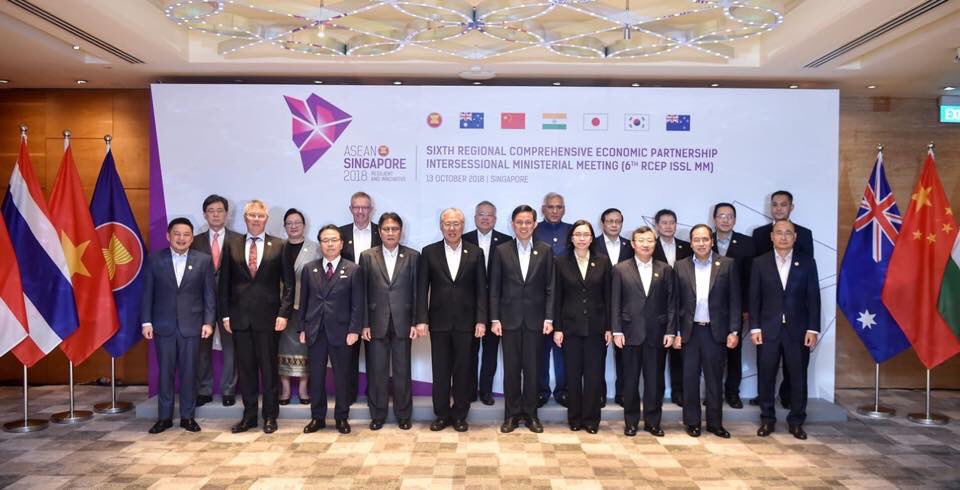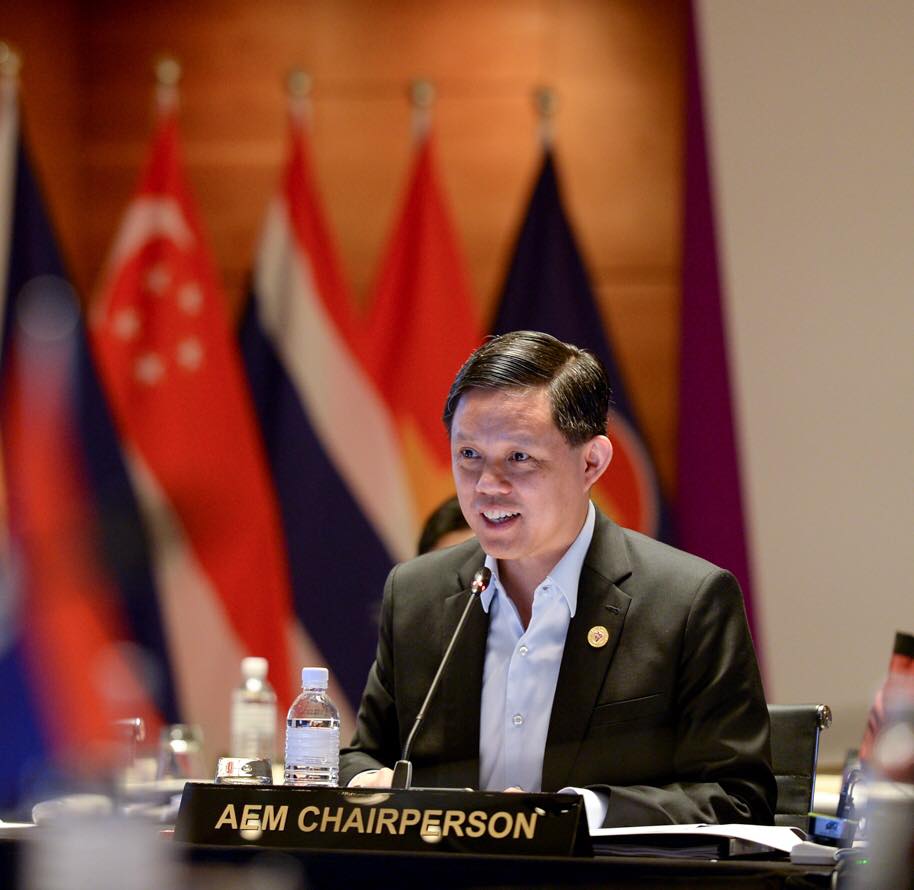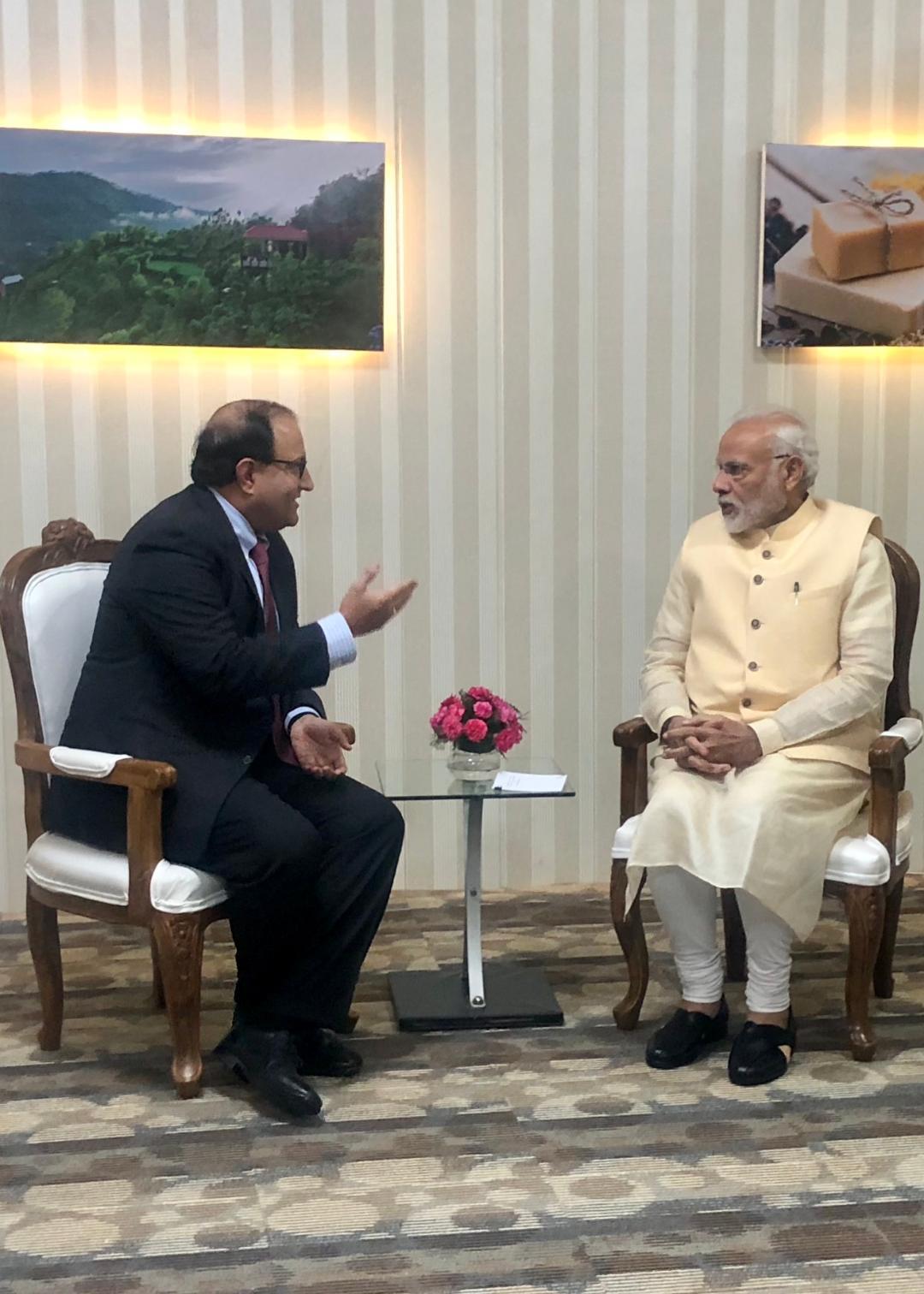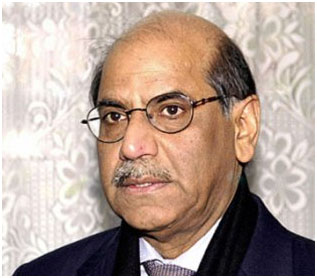Singapore has sought India's cooperation in conclusion of early negotiations of Regional Comprehensive Economic Partnership (RCEP), a rule based trading framework comprising ten ASEAN nations and their six FTA partners.
The ladder and snake negotiations between 16 RCEP countries with competing and conflicting interests that went on for two days till Saturday, did make some forward movement with Singapore's Minister of Trade and Industry Chan Chun Sing hoping some resolution by the year end.
Earlier, Minister-in-Charge of Trade Relations S Iswaran, during his visit to India, also urged Prime Minister Narendra Modi for an early conclusion of RCEP talks.
However, the Indian Minister for Commerce and Industry Suresh Prabhu made clear that negotiations could well extend into 2019 as there was no agreement yet on several sticky issue such as opening of Indian market for Chinese goods, which are already flooded, and extending Indian service sector to the RCEP countries.
India's junior Minister for Commerce and Industry C R Chaudhary held bilateral meeting on the sidelines with Singapore's Minister of Trade and Industry Chan Chun Sing who sought India's help in early conclusion of RCEP negotiations, according to a statement from Indian Ministry of Commerce and Industry here.
"The Ministers from 16 RCEP countries welcomed the intensification of market negotiations. While appreciating some narrowing of gaps, the Ministers urged all RECP participating countries to continue to exert all efforts towards meeting the targets set in the package of Year End Deliverables," the ministry further stated.
Singapore's trade minister Chan described the discussion with the RCEP ministers as fruitful and important.
"We took stock of the progress made at the RCEP-related meetings held in the last few months and continued to narrow the gaps, particularly in the areas of market access and rules. The task ahead is to help each other overcome any challenges by exercising as much flexibility as possible and move towards meeting the targets set in our deliverables by the end of the year," Chan said.
"We all agreed that it has become all the more urgent and significant for ASEAN and its FTA partners to reaffirm the importance of open and free trade amidst the rising global trade tensions. The substantial conclusion of the RCEP negotiations will reflect our shared commitment to maintain a pro-business and investment-friendly climate, one which welcomes trade and business activities that will bring about opportunities and jobs for our people," Chan added.
Earlier this month during his visit to Uttarakhand Investors Summit in India, Singapore's trade relations minister Iswaran met Prime Minister Modi on summit sidelines.
"Prime Minister Modi and Mr Iswaran reaffirmed the strengthening bilateral relations between Singapore and India, and the importance of regional cooperation through agreements such as the Regional Comprehensive Economic Partnership (RCEP)," a statement from Singapore's trade ministry said.
Indian minister Chaudhary also met his counterpart Vice Minister of China Wang Shouwen and emphasized the need of differential treatment for India in RCEP negotiations, access to service sector of China for Indian companies, and promotion of tourism.
Even as New Delhi and Indian industry perceive China gaining access to Indian markets through RCEP as threat to their interests, experts warn backing out is not an option. This could be the only chance for India to bring China round to a rule based regime and the real test of India's much professed Act East Policy.
Former foreign secretary and Senior Fellow at Centre for Policy Research Shyam Saran has argued opting out of RCEP may push India "irretrievably on the margins" of Asia.
"Regional economic integration is an indispensable component of the Act East policy. India cannot sustain an expanding political and security role in the Indo-Pacific with a shrinking economic role. RCEP is the only game in town for India as we are excluded from the Asia-Pacific Economic Cooperation (APEC), whose 22 members are actively considering a Free Trade Area of the Asia-Pacific. Neither is India included in the Comprehensive and Progressive Agreement for Trans-Pacific Partnership, which has been concluded among 12 countries after the US under Trump walked out. Several RCEP countries are also its members. Opting out of RCEP may push India irretrievably on the margins of Asia," Saran wrote in his latest analysis.
"Indian industry is wary of the potentially adverse impact of preferential Chinese imports. But this is the only chance of securing a rules-based framework with China," observed Rajeev Kher, former Commerce Secretary and Distinguished Fellow Reesearch and Information System for Developing Countries, an economic policy think tank.






